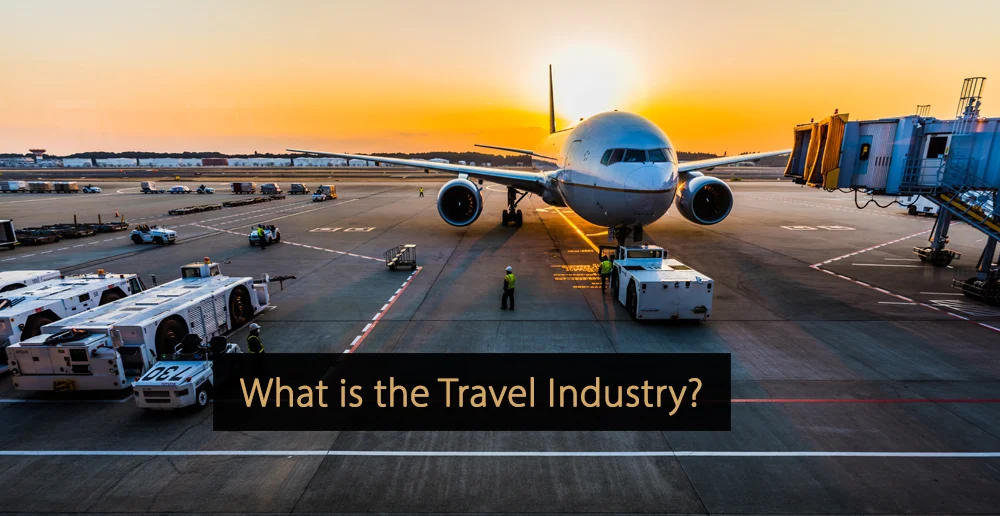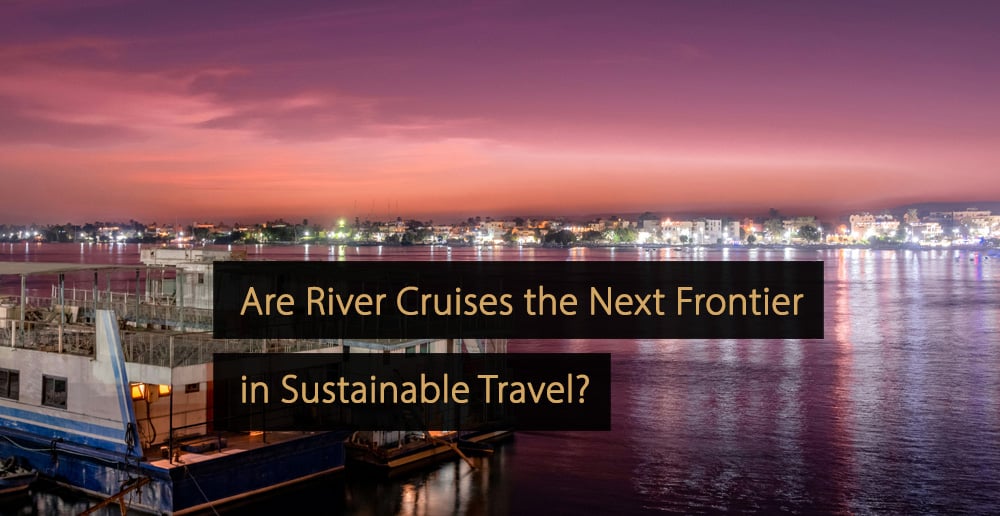The travel industry is one of the largest service industries in the world, an increasingly important one in the modern age. It is centered on the movement of people from one location to another and the services they require along the way. It is closely linked to the hospitality and hotel industries, among others. In this article, you will learn more about what the travel industry is and the various sectors contained within it.
Table of Contents:
- What is the Travel Industry?
- The Difference Between the Travel Industry and the Tourism Industry
- What Sectors and Company Types Operate Within the Travel Industry?
- The Latest Travel Trends
- Technology Trends in the Travel Industry
- The Latest Travel Marketing Tips
- Revenue Management and Its Importance For the Travel Industry
- Boost Bookings By Connecting With a Travel Agency
- The Best Job Boards for Roles in the Travel Industry
- Tips to Find a Career in the Travel Industry
- What You Need to Know About Tourism Management
- Google Travel Insights: Tools and Insights for the Travel Industry
- Other Related Industries
What Is the Travel Industry?
In simple terms, the travel industry provides services related to travel from one location to another. This includes services directly related to the travel itself, such as transportation, but also includes services related to catering to travelers’ needs and wants after arriving at their destination.
It is often associated with the tourism industry, and, as you will learn later in this article, there is a significant cross-over between the two, especially in terms of the businesses that fall under their respective umbrellas.
The Difference Between the Travel Industry and the Tourism Industry
According to the Travel & Tourism – Worldwide Report by Statista, the combined travel & tourism market is projected to grow to a market volume of $1,063 billion by 2028, but while the travel and tourism industries are interlinked, it is important to understand that the two have some notable differences. Essentially, the tourism industry relates to the industry centered on tourism, which is the specific act of traveling to a different location, either for business or pleasure.
By contrast, the travel industry is related to a person’s travel from one place to another and the various services they use in that process. In some ways, this means that the travel industry is slightly broader than the tourism industry because it covers many travel purposes and includes trips to non-tourist destinations.
Table: Difference Between the Tourism and Travel Industry
What Sectors and Company Types Operate Within the Travel Industry?
The travel industry encompasses multiple sectors. Read about the key players below.
1) Transportation
When they think of the travel industry, many immediately think about transportation and the companies offering transport services. In reality, this is only one sector of the travel industry. Still, it is perhaps the most important, as it centers around facilitating travel from one location to another. Included within this are road, rail, air, and water transportation services, as outlined below:
Airline Industry
The airline industry provides various forms of air travel, including commercial and chartered flights. These flights can be overseas or domestic and cater for relatively short distances, right through to trips to the other side of the world. Different airlines tend to serve specific regions and airports.
Car Rental
Car rental plays a key role in the travel industry, providing temporary access to cars and other similar vehicles. For travelers, the main benefit is the freedom provided via access to a car, as it means the process of getting around is not reliant on scheduled public transport services.
Water Transport
Water transport moves people across the water, including rivers, lakes, canals, and oceans. Examples of some of the forms of transport that are included within this category are ocean liners and ferries. Cruises are also included in this, as cruises have a set path, and travel is a fundamental part of the experience.
Coach Services
In many cases, travelers use coach services to travel to their chosen location, which is often more cost-effective than the main alternatives. Coaches also facilitate day trips, while local bus services provide a means for getting around once travelers have arrived at their destination.
Railway
Railways are one of the main ways that people travel domestically, while many rail services also facilitate long-distance international travel. Moreover, underground or subway-style train services tend to provide a convenient way for travelers to get around large cities once they have arrived.
Spacecraft
Finally, one of the emerging sub-sections of the transport category of the travel industry relates to spacecraft and commercial space flight. Virgin Galactic is the most well-known example here, with the company aiming to provide space tourism services shortly, allowing customers to travel to outer space.
2) Accommodation
Another vital sector within the travel industry is the accommodation sector. After all, most long-distance travelers will require somewhere to stay overnight. That said, people’s accommodation requirements can vary quite significantly, depending on the length of their stay, the purpose of their journey, the budget they are operating on, the experience they wish to gain, and their personal preferences. According to the Hotel And Other Travel Accommodation Global Market Opportunities And Strategies by Research and Markets, the global hotel and accommodation market is projected to reach $1,453.44 billion by 2031.
Hotels
The hotel and travel industries are closely linked, with hotels being the most popular accommodation for those traveling to a different location and staying overnight. Hotels are establishments that provide access to beds within private rooms. These rooms usually have en suite bathrooms and additional facilities.
Shared Accommodation
Thanks to the success of services like Airbnb, shared accommodation has emerged as an increasingly popular option for travelers. Through these platforms, guests can find homestay offerings. This may mean having access to a private room in an occupied house or having access to a room shared with other guests.
Hostels
A form of sociable accommodation, hostels provide dorm rooms with multiple beds, and guests effectively pay for a bed rather than a private room. There is a wide range of hostel types, with either mixed or same-sex dormitories, and guests will typically share kitchen, bathroom, and living spaces.
Camping
Considered a form of outdoor accommodation, camping involves staying overnight in basic shelters, such as a tent. Travelers may spend their time in a commercial campsite, which usually provides additional amenities, or camp in publicly accessible conservation areas, such as national parks.
Bed and Breakfast
A bed and breakfast is similar to a hotel in that guests have a private room for overnight stays. However, B&Bs tend to be converted family homes, often with the owners still living there. As the name suggests, breakfast is provided, while a B&B usually has a few rooms.
Motels
Motels form an important part of the travel industry. The word itself means ‘motor hotel’, and these properties primarily cater to motorists. They are usually situated along popular routes, will provide on-site parking, and will offer individual rooms for guests, but additional facilities are more limited than with hotels.
Boutique Hotels
A boutique hotel is a design-driven hotel with unique qualities. These hotels will often be extremely trendy and may have a specific theme. Moreover, they are often located within urban areas and will have a relatively small number of rooms. They will often be independent hotels rather than part of wider travel industry chains.
Cruises
Aside from being classed as a form of transportation, cruises are also a type of accommodation. After all, guests on cruises will spend most of their time on the ship and will usually be allocated a cabin aboard the ship, where they can relax and sleep.
Farmhouse Accommodation and Agri-Tourism
Agri-tourism is a niche industry which is becoming increasingly popular, with people wishing to get away from their usual environment, spend time on a farm, see the day-to-day activities and perhaps even take part themselves. Farmhouse accommodation facilitates this and often resembles a bed and breakfast setup.
Video: What Is Agritourism?
Time-Share Accommodation
Time-share accommodation refers to a property shared between multiple owners, such as a condo or a holiday home. Ownership rights are split evenly, and usage rights are allocated to each owner for a specific period, meaning every owner gets their time to use the property.
3) Food and Beverage
The food and beverage sector primarily caters to travelers’ basic needs by providing food and drink services. However, it is essential to understand that businesses and services in this category go beyond this primary purpose. Indeed, a huge part of the food and beverage sector is also based on providing travelers with places to relax, enjoy themselves, and/or socialize.
Restaurants
For most people, restaurants are the most immediately obvious category within the food and beverages sector. Restaurants exist to allow people to enjoy meals that are prepared for them. There is a wide range of restaurant types, from fast-food chains to luxury or family restaurants, all catering to different needs and tastes.
Catering
Catering refers to providing food and drinks in locations that are more remote or self-contained, with examples of this including entertainment venues, tourist attractions and parks. In addition, catering services are provided on many forms of transport, including airplanes, trains, and ferries.
Fast Food Restaurants
Fast food restaurants serve a key role within the travel industry, providing quick and convenient food. Most fast-food restaurants will offer both dine-in and takeaway services, and many will also offer drive-through service. Fast food is usually much more affordable than the food offered by restaurants.
Nightclubs
A nightclub is an entertainment venue that operates until late at night and emphasizes music and alcohol consumption. Common features include a bar, a stage for live performances, and a dance floor. Nightclubs may put on themed club nights or cater to specific music genres.
Bars & Cafés
For travelers, bars and cafés provide a means to enjoy food and drink more casually than restaurants and nightclubs. Cafés tend to focus on hot drinks and light snacks, while bars generally focus on alcoholic beverages and soft drinks. These premises also offer a way for travelers to meet new people.
4) Entertainment
The entertainment sector plays an interesting and complex role in the travel industry. After all, entertainment sites can sometimes be the biggest factor attracting travelers to a particular part of the world. On the other hand, businesses in this category can also play a smaller, more supplementary role, helping to keep travelers entertained during their trip, even if entertainment was not the intended purpose of their trip.
Casino
Casinos provide gambling activities, including card games, dice games, and other luck or skill-based games. In many cases, casinos also offer additional entertainment, and they are sometimes connected to hotels or resorts, especially in locations like Las Vegas and Monte Carlo.
Tourist Information
Tourist information services provide travelers with information about tourist sites and activities they can engage in. There are offline and online services, with examples of offline tourist information, including tourist information offices and tourism literature, while online sources consist of informational websites.
Shopping
Shopping is another crucial part of the travel industry, catering to basic needs and travelers’ desires for luxury items or consumer products. This category includes supermarkets, shopping centers, and local markets, while duty-free goods are sold at airports and other locations.
Tourist Guides & Tours
Tourists can assist travelers with sightseeing and other tour-related activities through organized tours. Aside from handling the logistical aspect of planning routes, tourist guides can also educate travelers by providing them with important information, insights, and facts.
Amusement Parks
Amusement parks are major tourist attractions and play an important part in the wider travel industry by helping to convince travelers to visit a specific destination. An amusement park will contain games, rides, performances, and other entertainment options. Theme parks are amusement parks with a specific theme, such as Walt Disney World.
5) Connected Industries
Finally, a range of industries or sub-sectors are broadly linked to the travel industry. These related industries may offer products or services to travelers before they depart on their travels or may operate to try to promote or improve the travel industry itself. They include both online and offline services, with some of the most significant related industries outlined in more detail below:
Financial Services
Several financial service providers fall within the travel industry umbrella. Perhaps the most obvious examples that would come under this definition are travel insurance, trip protection insurance, travel medical plans, and services related to currency conversion.
Travel Agents
Put simply, travel agents are retailers that provide travel and tourism products and serve as intermediaries for travelers and suppliers. They may, for example, offer flights, hotel stays, airport transfers, travel insurance, and tourism activities, often as a package. Travel agents usually receive a commission and may also offer advice.
Tour Operators
A tour operator typically provides travelers with package holiday products, which combine travel and tour components. This might mean providing: travel to a destination, overnight accommodation, hotel transfers, and the services of a tour rep. It may also include a pre-planned itinerary or a variety of organized activities.
Online Travel Agencies (OTAs)
Online travel agencies, or OTAs, provide similar services to traditional travel agents, albeit through a website or web app. However, one of the key differences between OTAs and classic travel agents is the emphasis that OTAs place on self-service, with the website or app connecting users with the travel products they are looking for.
Video: Online Travel Agents Explained
Tourism Organizations
Tourism organizations are organizations that are actively involved in promoting the tourism industry and its interests. It includes organizations that regulate or influence national and local tourism policies, including tourist boards, tourism-related charities, and tourism inspection agencies.
Educational
Last but not least, the educational sub-section is one of the fastest-growing components of the travel industry. Many travel to business conferences, exhibitions, training sessions, or academic institutions. Businesses in this sub-section provide these services and cater to travelers’ needs.
Travel Trends: Opportunities for the Travel Industry
Change and evolution are more fast-paced than ever, with shifting demographics, fast-changing consumer behavior, and developing technology creating brand-new travel trends. Businesses operating in the travel industry that identify and take advantage of key travel trends will be uniquely positioned to thrive in this dynamic environment. In the article “Travel Trends: Opportunities for the Travel Industry”, we piled up the latest travel trends for you.
The Latest Technology Trends Used in the Travel Industry
For businesses in the travel industry, as well as their customers, technology plays a vital role. It can increase business operations’ efficiency and improve the customer experience. Companies operating within the travel industry must keep up-to-date with emerging travel technology trends to avoid falling behind competitors. The article “Key Technology Trends Emerging in the Travel Industry” describes more information and examples of innovative technology trends.
The Latest Travel Industry Marketing Tips
Travel marketing is one of the most important ways for those in the travel industry to stand out from rivals, engage customers, generate brand awareness, and offer incentives to customers. In the article “Travel Marketing: The Latest Marketing Tips to Boost Your Results!” you will find examples of some of the most up-to-date travel marketing strategies that companies operating within the travel industry should be aware of. By deploying these strategies effectively, you should be able to boost your overall business results.
Revenue Management and Its Importance For the Travel Industry
In the travel industry, revenue management analyzes consumer behavior to optimize product availability and increase profits. The main objective of the revenue management strategy is to sell the right product or service to the right clients for the right price. This can only be done by understanding the customers’ perception of your service or product before being able to adjust the prices accurately. Business owners and managers within the travel industry should read the article, ‘Revenue Management; clearly explained!’ to better understand this topic.
Boost Bookings By Connecting With a Travel Agency
Travel agencies can be key distribution partners for companies of all kinds in the travel industry, as they can help you generate bookings that you would otherwise have missed out on. With that being said, different travel agencies appeal to different markets, and not every travel agency will necessarily be able to reach your target demographics.
Read “Boost Bookings By Connecting With a Travel Agency,” and you can learn more about how travel agencies can assist you with demand while also gaining access to a list of some of the most valuable agencies to work with.
The Best Job Boards for Roles in the Travel Industry
The travel industry offers many job opportunities, but finding and applying for travel jobs requires you to use the right channels. Specialist job boards are one of the most effective options because they allow you to search for travel jobs easily and apply online, all from a single location.
Check out “Travel Jobs: The Best Travel Industry Job Boards for Your Career” for a breakdown of some of the most popular job boards focused on the travel industry.
Tips to Find a Career in the Travel Industry
The travel industry has a lot to offer employees, partly due to its diversity, which is one of the reasons so many people are interested in pursuing travel careers. Of course, to land a job in the industry, you will potentially need to beat others to the post, which means getting your application spot on.
Check out the “Travel Careers: Tips to Find a Career in the Travel Industry” article, where you can read our nine tips for improving your CV, job interview technique, networking and long-term career prospects.
What You Need to Know About Tourism Management
A travel or tourism management degree is the perfect gateway to a world of limitless career options. Just think of all the valuable skills you can gain in the process. If you have a passion for traveling, good organizational skills, and love working with people, then this job is for you.
To work as a successful tourist manager, you must first learn about the relevant qualifications and the types of jobs offered in this industry, as explained in this article, ‘Tourism Management: All You Need to Know About Tourism’.
Google Travel Insights: Tools and Insights for the Travel Industry
Many businesses in the travel industry are hugely reliant on data and need to be able to track industry trends, which is why the launch of Google Travel Insights was widely welcomed. The tool provides insights into the past and current demand for travel, along with various other tools, allowing companies to adopt a more strategic approach.
Read the “Google Travel Insights: Tools & Data Trends for The Travel Industry” article for information about Google Travel Insights, the three core components, and what they each have to offer those in the travel industry.
Travel Industry FAQs
Ultimately, the travel industry is focused on providing customers with the various services they need when traveling from one part of the world to another. It is similar to the tourism industry but has a slightly broader definition, as it includes services related to travel for purposes other than tourism.
Want to Learn More About Related Industries?
The hospitality industry is part of the travel industry, and the hotel industry is part of the hospitality industry. All these industries have in common is that they are large service industries worldwide and are increasingly important in the modern age. But what is the difference between the hotel industry and the hospitality industry? And what are all hospitality sectors within the hospitality industry? In the following articles, you learn more about related industries.
- Hotel Industry; An Overview of All Different Types of Accommodations
- Hospitality Industry; Everything You Need to Know About Hospitality
- Tourism Industry; Everything You Need to Know About Tourism
- What is the Difference Between the Travel and Tourism Industry?
- Airline Industry: All You Need to Know About The Airline Sector
- Aviation Industry: Everything You Need to Know About the Aviation Sector
- Everything You Need to Know About the Cruise Industry
- Space Tourism: Space Companies That Will Make You An Astronaut
- Restaurant Industry: Overview, Types, Examples and More
More Tips to Grow Your Business
Revfine.com is the leading knowledge platform for the hospitality and travel industry. Professionals use our insights, strategies, and actionable tips to get inspired, optimize revenue, innovate processes, and improve customer experience.Explore expert advice on management, marketing, revenue management, operations, software, and technology in our dedicated Hotel, Hospitality, and Travel & Tourism categories.
This article is written by:
Hi, I am Martijn Barten, founder of Revfine.com. With 20 years of experience in the hospitality industry, I specialize in optimizing revenue by combining revenue management with marketing strategies. I have successfully developed, implemented, and managed revenue management and marketing strategies for individual properties and multi-property portfolios.











Great article about the travel industry. Very informative, thank you!